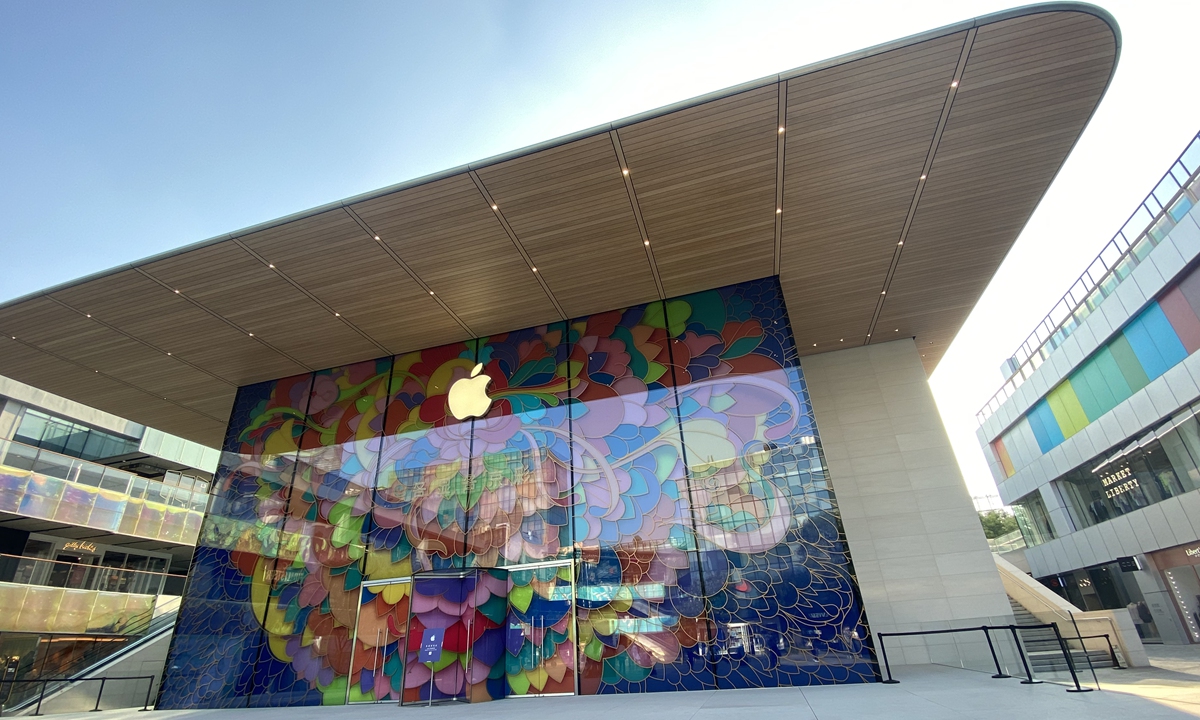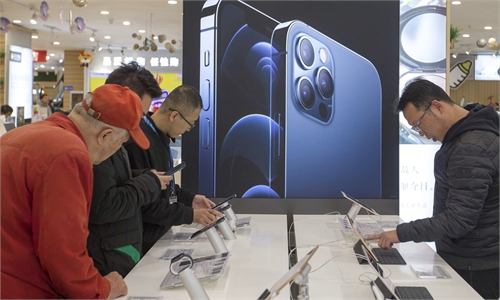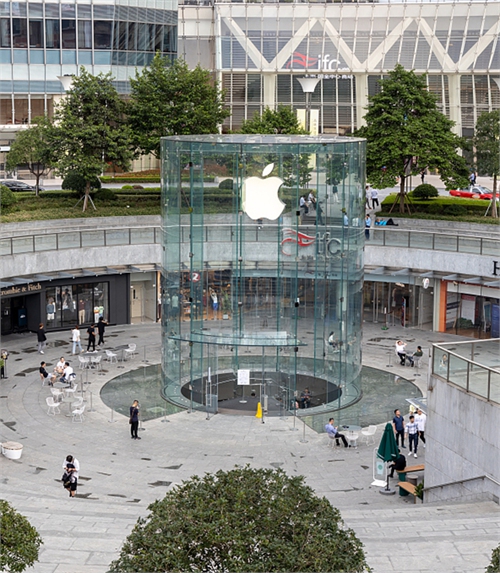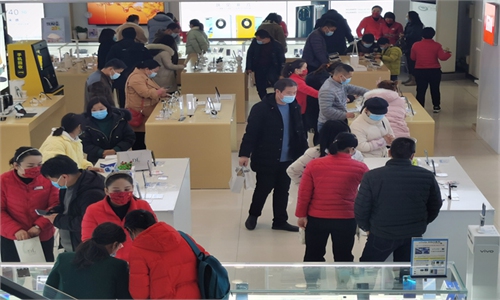
The new flagship branch of Apple in Beijing Photo:Zhang Dan/GT
Apple is reportedly planning to invest $3.6 billion in South Korea car manufacturer Kia Motors to facilitate their cooperation on producing electronic vehicles. Industry observers said the partnering with a South Korean carmaker instead of a Chinese one is perhaps out of political consideration, as the US tech company could have concerns over the transfer of key intellectual property.
And, Chinese automakers' lack of global marketing experience may also weigh on Apple's decision, analysts noted. But still, a South Korean partner would give Apple proximity to China's complete new-energy vehicle (NEV) industry chain and access to the world's largest NEV market.
The deal could be signed as early as next week, Korean site DongA Ilbo reported. Kia will build Apple cars at its US facility located in the US state of Georgia, and they aim to introduce Apple Cars in 2024. The partnership also comes amid multiple reports on Apple's partnership with Hyundai Motor, the owner of the Kia brand.
An industry observer, who prefers not to be identified, told the Global Times Wednesday that as the partnership involves deeper technological cooperation - unlike how Foxconn makes iPhones for Apple - the US company may have concerns about core technology such as autonomous driving being transferred to its partner.
"That's a 'hidden philosophy' or prejudice some Western companies hold (toward Chinese companies), as these companies don't trust Chinese partners," the observer added.
Tensions between the world's two largest economies also add to Apple's concerns, although the Biden administration could act in a different and more restrained way, analysts said.
Feng Shiming, a Shanghai-based auto industry analyst, told the Global Times on Wednesday that it is difficult for Apple to locate a partner in China, as a number of traditional carmakers have already established long-term cooperation with selected foreign partners, and new local NEV start-ups lack production capacity.
"Chinese automakers do not have an edge over their competitors in terms of launching auto factories overseas," Feng said. He added that as US-based Tesla has opened a factory in China, Apple is also worried about "being downgraded to be the second child" in China, which could dent its brand prestige in China.
China is now the world's largest NEV market. Last year, NEV sales hit a record high of 1.37 million units, data released by the Ministry of Industry and Information Technology showed.



